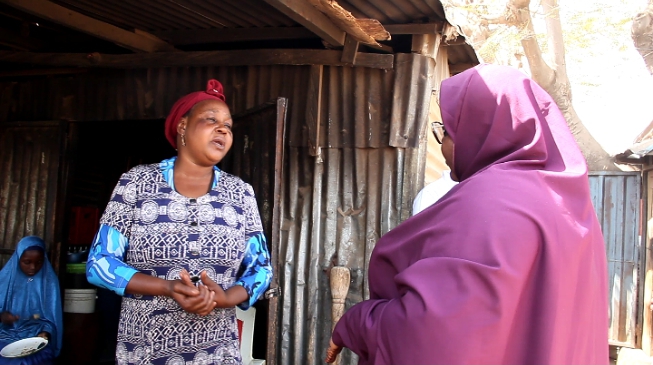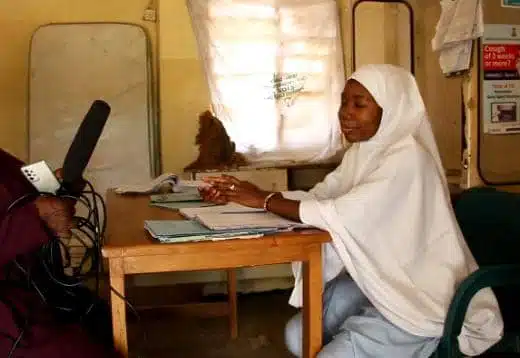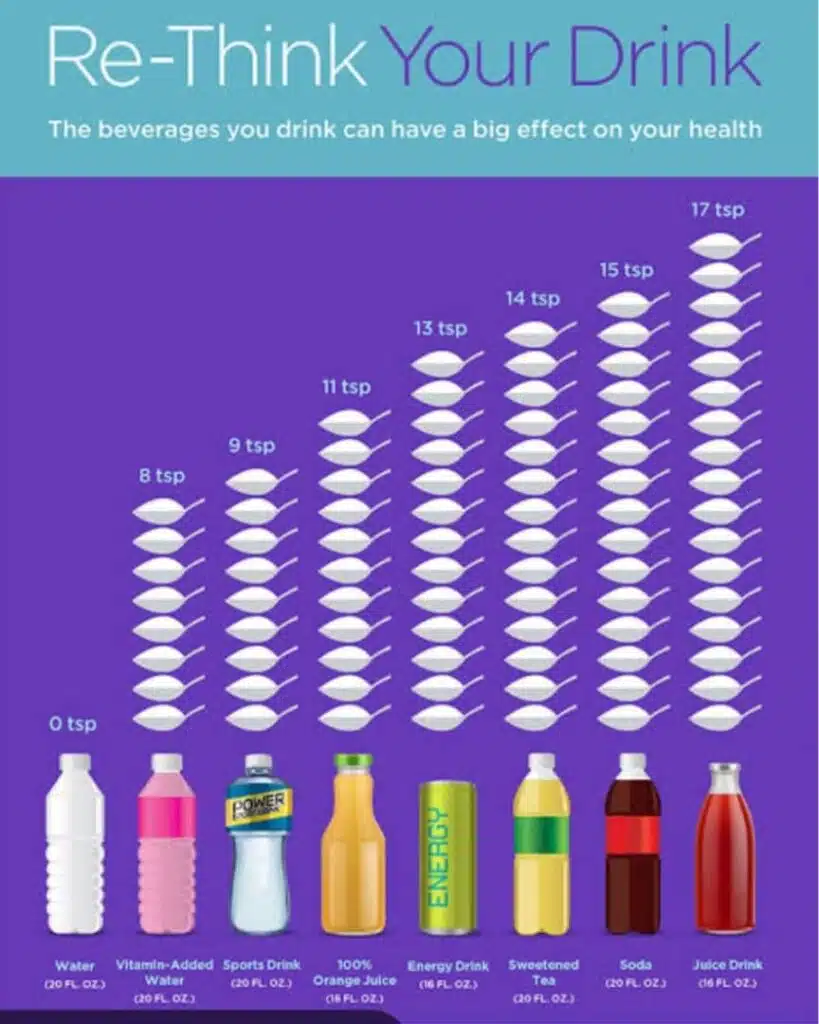By: Khadija Ishaq Bawas
Thabita Yanga, 40, a food vendor in Kura town of Kura Local Government Area in Kano State loves to indulge in the consumption of sweet treats like cakes and an array of assorted soft drinks. She thought that as long as she exercised regularly and maintained a healthy weight, she was okay. However, Thabita didn’t realise that her sugar consumption of Sugar-Sweetened Beverages (SSBs) was affecting her health in many ways.
“It started with my foot paining me severely then other part of my body, initially i thought i was struck with juju by my enemies for building a house, but that was not the case afterall,”
READ ALSO: Jigawa: Hisbah confiscates 308 bottles of assorted alcoholic beverages, suspects flee
Thabita’s SSB consumption was leading to weight gain, which in turn increased her risk for several health issues such as heart disease, diabetes, and cancer in addition to inflammation, which can exacerbate conditions like arthritis, asthma, and eczema.

As Thabita continued to consume large amounts of sugar on a regular basis, she began to notice that her energy levels were lower than usual. She found it hard to concentrate and often felt sluggish throughout the day. She also noticed that her skin was looking dull and was breaking out more often than usual.
Eventually, Thabita after seeing a Doctor,realised that her SSB consumption was the root cause of these health issues and decided to make some changes to her diet, by reducing her sugar intake and replacing sugary treats with healthier alternatives like fresh fruits and nuts as advised by the Doctor.
“I have also been on drugs and i spend a minimum of NGN 6,000 each time i go for my medication,”
However, as she made changes to her diet, she started to feel more energetic, focused, and her skin began to look healthier too but Thabita is just one out of many of her type that is affected by consumption of SSB, some without even knowing.
For the likes of Yahaya who consumes eight to ten bottles beverages daily, food is immaterial.
“I can take these drinks without even eating,”
Yahaya who admitted to witnessing various health challenges including constipation did not realise that his consumption of SSB was a contributing factor hence he vowed that even if a tax was imposed on such drinks and it amounts to NGN1,500 he would still consume it but may reduce the quantity he takes per day.
It’s no different from for Naziru Raji, 24, a local singer who also deals in the Town’s mainstay – rice selling.

“I take upto seven soft drinks or more everyday no matter the cost, I will still continue to indulge.”
But for Aliyu Danlami Abubakar, 34, who is a regular consumer of coca cola and fearless worth more than NGN5,000 daily, his consumption of the item has reduced, which he attributed to his health concerns.
“Certainly SSB Tax will reduce intake by people,” he admitted
Another rice seller Ismail, 29, who consumes two soft drinks during the day and two at night says he was always sick, but after he got medical advice to reduce intake, his health began to improve.
There are several countries around the world that have implemented taxes on sugar-sweetened beverages (SSBs) to reduce consumption and combat obesity and related health problems.
In 2014, Mexico introduced a tax on SSBs of 1 peso per litre (about 10%). This tax was expanded in 2020 to cover other sugary drinks, such as sports drinks and flavoured waters.
Similarly, in 2018, the UK implemented a sugar tax on soft drinks, with a tax of 18p per litre on drinks containing 5-8g of sugar per 100ml, and a higher tax of 24p per litre on drinks containing more than 8g of sugar per 100ml.
Previously, France had in 2012 introduced a tax on soft drinks containing added sugars or sweeteners. The tax is 7.53 euros per hectoliter (about 8 cents per litre).
Following suit, Norway in 2018, introduced a tax on SSBs of 1.75 kroner per litre (about 20 cents per litre) while in the same 2018, South Africa implemented a tax on SSBs of 2.1 cents per gram of sugar over 4g per 100ml, which translates to about 10% on a can of soda.
Other countries that have implemented taxes on SSBs include Hungary, Portugal, Chile, and the city of Philadelphia in the United States.
Many experts have advised Nigeria to go along the same route to curb the challenges associated with indiscriminate consumption of SSBs which is in turn stretching Nigerian health facilities.
24-year-old Hajara Ibrahim, a Dental Surgery Technician at the Kura Primary Health Care facility expressed concerns about the high number of cases the facility contends with.

According to her, refined carbohydrates, and other soft drinks, especially taken at night without brushing before going to bed, have brought about serious dental concerns.
Dr Kabiru Sada Bello, an Endocrinologist who handles diabetes and thyroid cases says the best drink is water as 70% of the human body is composed of water.
He says consumption of SSBs increase the risk of non-communicable diseases, especially diabetes mellitus which is a common disease in Nigeria and around 6% of Nigerians have it.
He argues that increasing taxes on SSBs can regulate consumption and minimise the risk of diseases.
“For every one person with diabetes there is one more that is not diagnosed. it is more common in urban settings compared to rural settings this can be explained by lack of exercise in urban areas and consumption of these…”
Nigeria has yet to impose a tax on sugar-sweetened beverages (SSBs). However, there have been discussions and proposals to introduce such a tax in Nigeria as a means to reduce the consumption of sugary drinks and promote healthier lifestyles.
In fact, in 2018, the Federal Ministry of Health in Nigeria announced plans to introduce a tax on SSBs, but the implementation has been delayed.
It’s worth noting that some Nigerian states, such as Lagos and Ogun, have already implemented a tax on SSBs, but it has not been enacted nationwide.
There are several advantages to imposing a tax on sugar-sweetened beverages (SSBs) ranging from health benefits, revenue generation, and economic benefits but overall, a tax on SSBs can be an effective policy tool for reducing sugar consumption, improving public health outcomes, generating revenue, and promoting healthier choices.
In terms of out-of-pocket expenses, in countries where SSBs are more expensive, people may be less likely to consume them, as they may choose less expensive alternatives or drink less overall.
A study published in PLOS Medicine in 2016 found that in 10 low- and middle-income countries, higher SSB prices were associated with lower consumption of SSBs. The study also found that people with lower incomes were more sensitive to changes in SSB prices, meaning that they were more likely to reduce their consumption of SSBs when prices increased.

Another study published in the American Journal of Preventive Medicine in 2019 found that higher out-of-pocket expenses for healthcare were associated with lower consumption of SSBs among adults in the United States. The study suggested that this relationship may be due to the fact that people who have higher out-of-pocket expenses for healthcare may be more aware of the health risks associated with consuming SSBs and may be more motivated to make healthier choices.
Notwithstanding, the story of Thabita and others like her, shows how excessive sugar consumption can have a negative impact on people’s health hence being mindful of SSB intake and making healthy choices can maintain physical and mental well-being.


